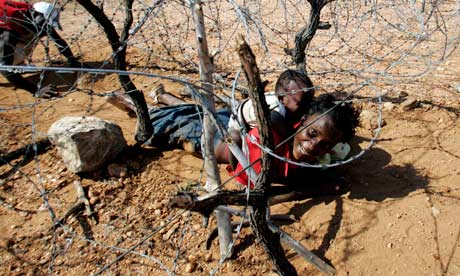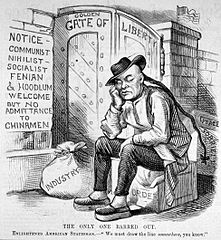The supposedly horrible socioeconomic consequences of South African apartheid’s abolition are sometimes used as a cautionary tale against open borders. But this story of Ethiopians and Somalians risking life and limb to get into South Africa serve as a potent example of how much people are willing to risk in search of a better life:
41 young Ethiopians suffocated to death inside an overcrowded van in Tanzania. With the aid of human traffickers, they had been hoping to start a new life in South Africa.
Some ended up paying with their lives, while those who survived will be deported back to their home country.
…Most refugees from Ethiopia and Somalia are economic refugees, says Getachew. But others flee also from war and political persecution. 32 year-old Mohad Abdul is among those who fled to South Africa because of violence in Somalia….Integration in South Africa was relatively easy for Abdul. He quickly obtained a residence and work permit. Today he is a businessman in Johannesburg and watches closely as more and more Somalis and Ethiopians flock into the country.
In no other country are there so many asylum applications. In 2011 alone, there were 100,000 applications. The authorities can scarcely keep up with processing them.
There is no accounting for such reckless risking of life without considering the place premium: the same person doing the same job in one country can earn dramatically more than he or she would in a different country. The Somalian fleeing lawlessness is almost certain to be more productive in any other society in the world, since that country will at least have a half-functioning legal system. It is not difficult to imagine that even countries in less anarchic states might not offer their citizens the institutions conducive to productivity and prosperity which do exist a country or two away.
The international wage discrimination created by closed borders is literally the worst that has ever been measured. That conclusion may sound shockingly strong, but when you consider that there are Indonesians who literally migrate to Australian jails (because to them it’s better to be in a jail in Australia than free in their homeland) or Afghans who risk being shot to death to get into Iran, what’s shocking is how blind we are to the suffering which closed borders create.
The image featured at the top of this post is of a mother with her child crawling under the South African fence bordering Zimbabwe, taken by Themba Hadebe for the Associated Press in 2010 and published in The Guardian.



